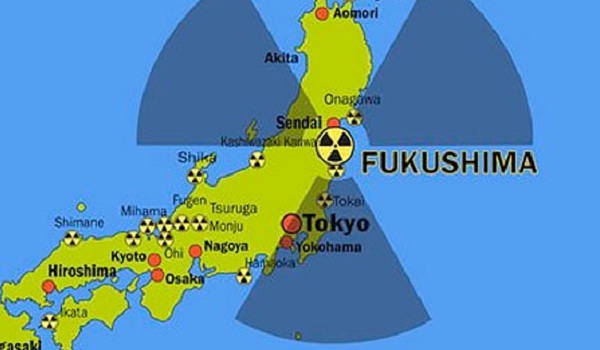Fukushima: Worst Case Scenario Reached According To Japanese Professors – A ‘World-Ends-Scenario’
Sunday, October 13, 2013 16:06According to Professors in Japan, the ‘worst case scenario’ for Fukushima has been reached, the nuclear rods have melted and went through the reactor floors. This story released today from ENENews is disheartening and shares that this situation will continue to be THE major story for world health for humans, fish, bird and animal life across the entire world for decades if not longer. According to the newly released video below, the worst case scenario for Fukushima is also a ‘world-ends-scenario’, an “extinction level event if this mess is not cleaned up, fast.”
Japan Professors: Worst case scenario at Fukushima, nuclear rods melted and went through reactor floors; Contamination is impacting rest of world; Likely that entire Pacific will be affected — Farmer: Gov’t doesn’t have any idea about status of fuel
Kyoto University’s Okada Norio, Yoshio Kajitani, Hirokazu Tatano & Beijing University’s Tao Ye, Peijun Shi: [T]he nuclear accident gradually became a level 7 nuclear event, which is a major accident and the highest level on the International Nuclear and Radiological Event Scale (INES), equivalent to the Chernobyl disaster in April 1986. The radiation in the vicinity of the reactor rose steeply, becoming a deadly threat to the local residents […] three units were exposed to level 7 accidents and one unit was exposed to a level 3 incident. The critical issue in the crisis became the cooling systems failures. […] The high temperature turned most of the internal coolant water into steam, which in turn exposed the fuel rods to air. […] Fuel would escape away from control rods, intensify decay, melt through the reactor floor, and consequently induce a massive release of radioactive isotopes, a worst case scenario. […] Radioactive isotopes released from Fukushima were later detected in North America and other regions in the world. […] The long-term impact of the nuclear crisis to Japan, the Asia-Pacific region, and the entire world is still not fully revealed. […] The radioactive contamination caused by the nuclear accident following the earthquake and tsunami is affecting the rest of the world through atmospheric circulation. The polluted water released by the Tokyo Electric Power Company is likely to affect the entire Pacific Ocean in the coming decades.
Monday, October 14, 2013
Fukushima: Worst Case Scenario Reached According To Japanese Professors – A ‘World-Ends-Scenario’
Subscribe to:
Post Comments (Atom)

No comments:
Post a Comment